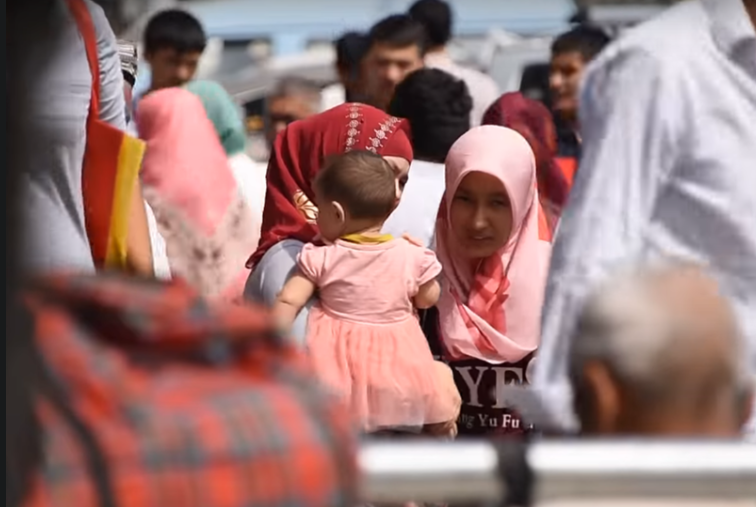Right now in China, Xinjiang China, there is mass incarceration of Muslims, Uighurs, in “re-education” camps, according to the Chinese government. We’ve heard of internment camps with Japanese Americans who were forced into relocation and incarceration in concentration camps. Or the World War II genocide of the European Jews who were also forced into concentration camps.
Who are the Uighurs?
The Uighurs are a Turkish ethnic, predominantly Muslim group, who consider themselves to be culturally and ethnically similar to Central Asian nations. Most of them live in Xinjiang, where there are about 11 million residents. Uzbekistan, Kyrgyzstan, and Kazakhstan are also where the Uighur communities are found, which are regions in Central Asia. A few thousand live in Australia. They have a language of their own, also called Uighur, while China is accused of forcing those who are taken to Xinjiang camps to learn Mandarin.
There has been a long-lasting conflict or tension between the Chinese and Uighurs. Since it was annexed in 1949, Xinjiang has been under China’s jurisdiction. Many Uighurs remember their homeland by its former name, eastern Turkestan. While the conflict dates back to 1931, factors such as the massive state-sponsored migration of Han Chinese from the 1950s to the 1970s, government policies encouraging Chinese cultural unity and punishing those expressions of Uighur identity. Also, harsh reactions to separatism have led to the friction between Uighurs and the state police and Han Chinese.
Why are the Uighurs in these camps?
China says that Uighurs hold radical beliefs that are a security threat. They refer to assaults that Uighur militants claimed to be responsible for in 2013 and 2014. Between 1 million and 3 million other Uighurs were illegally imprisoned by the Chinese Communist Party in so-called “re-education centers” and forced to undergo psychological indoctrination programs, such as studying communist propaganda and thanking Chinese President Xi Jinping. As part of the indoctrination process, Chinese officials have also allegedly used waterboarding and other forms of violence, including sexual assault. Another recent investigation found evidence that Uighur women were subjected to mass sterilization by Chinese officials, forced to take birth control or have abortions, and placed in camps if they resist. Some have argued that this effort to govern the Uighur population satisfies the concept of genocide by the United Nations.
Global Response
A letter to the U.N. on July 26th, 2019, by criticizing the Chinese leadership, the Human Rights Council, 22 nations, primarily European and except the United States, reacted to the illegal detentions of Uighurs. These countries addressed China, expressing disgust at its abuse of its Muslims in Xinjiang and requesting that the government comply with international commitments on religious freedom. Four days later, July 30th, 37 countries defended China’s “remarkable achievements in the field of Human Rights” by defending their nation from “terrorism, separatism, and religious extremism” The list of signatories included Saudi Arabia, Egypt, and Qatar, the Muslim majority countries.
Sources:
Wood, B. (n.d.). What is happening with the Uighurs in China? Retrieved December 24, 2020, from https://www.pbs.org/newshour/features/uighurs/
The Uighurs and the Chinese state: A long history of discord. (2020, July 20). Retrieved December 24, 2020, from https://www.bbc.com/news/world-asia-china-22278037
Kirby, J. (2020, July 28). Concentration camps and forced labor: China’s repression of the Uighurs, explained. Retrieved December 24, 2020, from https://www.vox.com/2020/7/28/21333345/uighurs-china-internment-camps-forced-labor-xinjiang






























